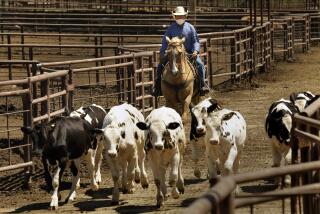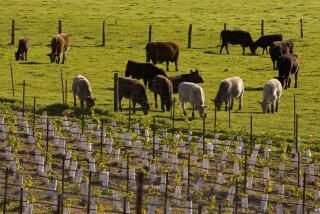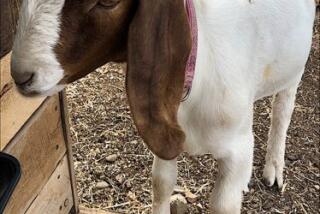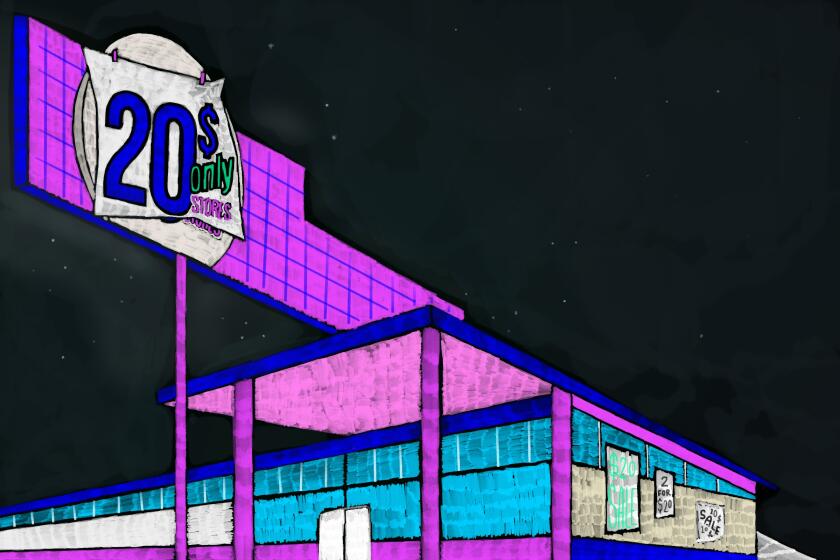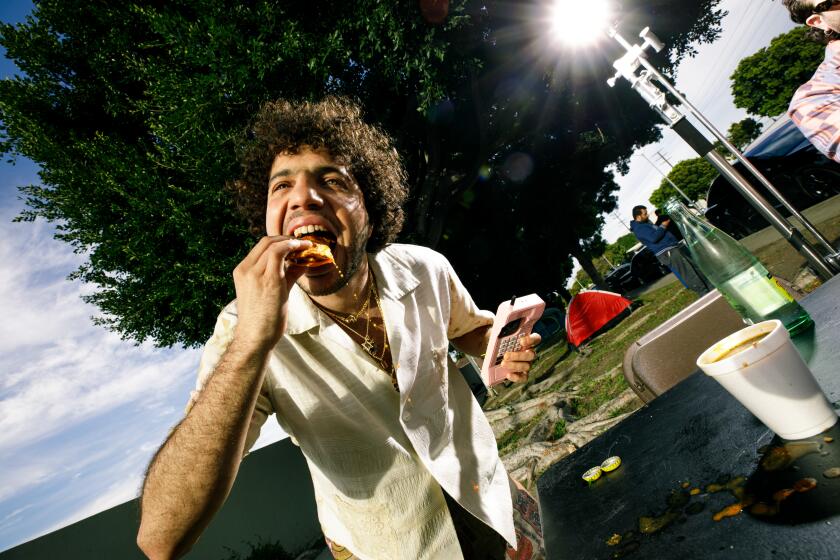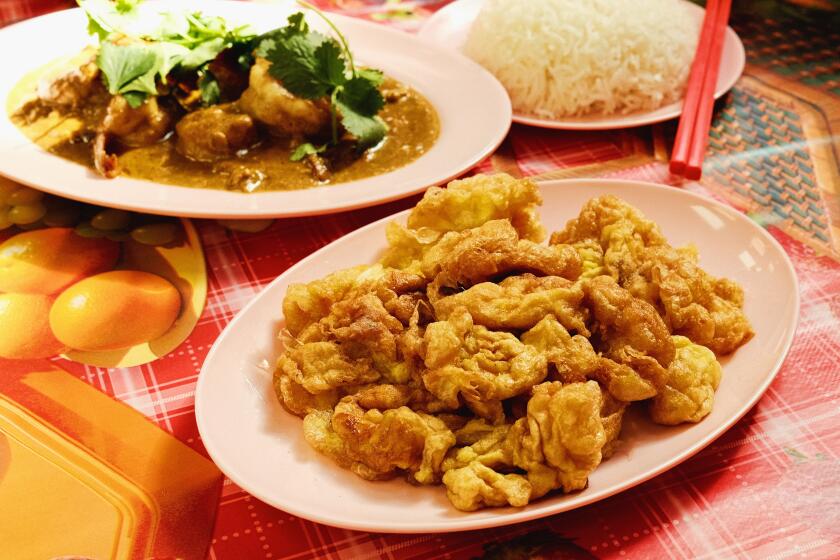Marin Sun purchase of slaughterhouse could be a game-changer for sustainable meat
What started out as a nightmare for small cattle ranchers in Northern California could turn out to be the game-changer sustainable meat has been waiting for.
Rancho Feeding Co., the Petaluma-based slaughterhouse that closed down last week after recalling 9 million pounds of beef because some of it may have come from what the Department of Agriculture has described as “diseased and unsound animals,” is being bought by Marin Sun Farms, one of the nation’s pioneers in grass-fed beef.
And Marin Sun owner David Evans is promising to turn it into a one-stop shop that can provide every service a small rancher might need -- from slaughter to sales.
“We’re going to completely rewrite the program of how animals are handled, we’re going to be a totally new business,” says Evans, a fourth-generation cattle rancher who began growing grass-fed beef back in 1998 on his family ranch in west Marin County.
After decades of meat industry consolidation, independent slaughterhouses have become a rarity, particularly ones that will work with small farmers. Rancho was the last one in Northern California and without it, ranchers were facing having to truck their cattle south to either Los Banos or Modesto, a drive of several hours from the North Bay and even farther for ranchers in Mendocino and Humboldt counties.
At a time when ranchers in general -- and growers of grass-fed and sustainable beef in particular -- are struggling to stay alive, that could have been a death sentence.
“David is basically rescuing North Bay ranching,” says cattleman Mike Gale of Chileno Valley Ranch, located just west of Petaluma. “All of us who work with pasture-finished animals are grateful to him. This is really the hope of the future for sustainable ranching.”
Now, if Marin Sun’s purchase goes as planned, not only will those ranchers keep their conveniently located slaughterhouse, but they’ll also have access to butchers who can craft individual cuts of meat from whole carcasses, marketers who can help sell and distribute the meat, and even a buyer for any meat they can’t sell to their own customers.
And it will all be done on a sustainable basis.
“We aren’t going to be in the commodity market at all,” Evans says. “This is going to be all niche-market meat -- all sustainably produced, quality product.”
What’s more, because Rancho was just a slaughterhouse, small ranchers that used them had to go there to have their cattle killed and dressed, then they had to take the carcasses to a meat processor to have them broken down into salable cuts. Then came sales and managing a distribution network to get the meat to their customers.
Because Marin Sun owns its own meat processing facility in San Francisco, and because it already has a distribution network to sell meat to restaurants and retail shops all over the state, it can take over all of those chores if the rancher so desires.
This vertical integration is necessary for sustainable meat to grow, says Anya Fernald of Belcampo Meat, a North Bay company that does everything from raising its own beef to selling it at branded stores and restaurants in San Francisco and, coming this spring, to downtown Los Angeles.
“It’s at the point where 100% ownership of your own slaughter facility is a necessity,” she says. “The reason is exactly what the Rancho experience showed us. There is a huge issue that these small struggling slaughterhouse businesses might not be doing things that are in line with what we want and what our customers want.
“There aren’t a wealth of options, so vertical integration is pretty much the best choice. We really applaud Marin Sun for doing that.”
Whereas Belcampo sells only meat it raises itself, Evans says the new Marin Sun will be open to any small rancher that fits with its sustainable ethic. [UPDATE: The story originally said Marin Sun “handles” only meat it raises itself; it does process meat for other ranchers, but only sells the meat it raises itself.]
“We’re going to be offering a suite of services that’s unprecedented,” says Evans. “A small producer might just want us to kill and return the carcass and that’s fine. But if they want, they can have the carcass moved to our San Francisco facility to be cut and packaged and even dry-aged if they want. Then we can deliver that meat for them to a restaurant in Los Angeles. If they want us to sell it for them, we can sell it for them with their brand on it.
“And if they want, we can help them sell to more than just their current customers. They can grow more cattle and immediately start producing for Marin Sun Farms as well.
“We don’t see anybody being a competitor here. We’re trying to grow the overall sustainable foodshed. By owning the critical infrastructure, we’ll be the rising tide that lifts all boats. I want everyone to be successful.”
ALSO:
9 great red wines to go with roast chicken
More to Read
Eat your way across L.A.
Get our weekly Tasting Notes newsletter for reviews, news and more.
You may occasionally receive promotional content from the Los Angeles Times.
